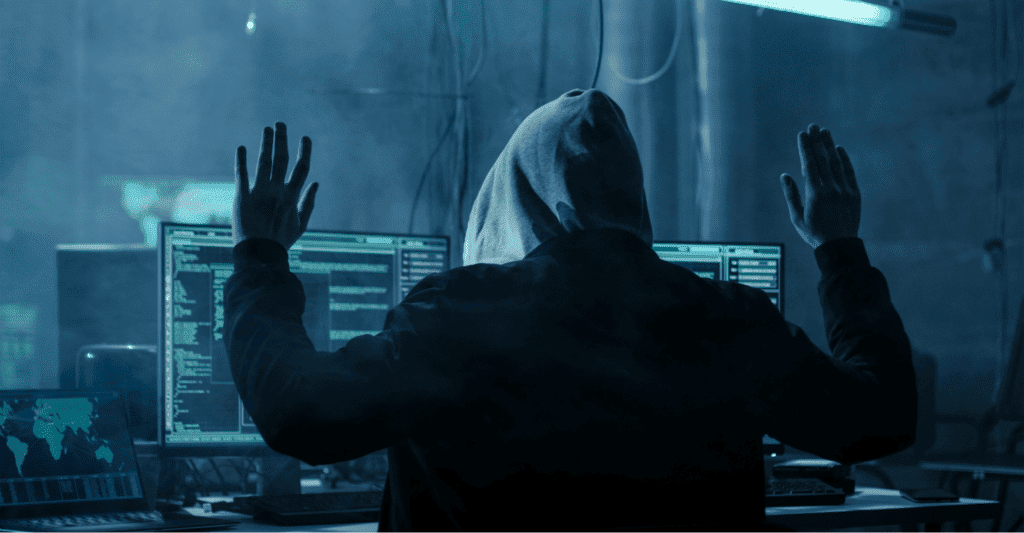
Running a business, maintaining a functioning government, or simply going about your average day is virtually impossible without, well, a virtual identity. With so much information stored online, including everything from credit card details to medical histories, people and organizations must employ tactics to mitigate the impacts of cyberattacks. Whether you’re a victim or accused of committing an internet crime, it’s crucial to unpack the history of these unlawful activities — past, present, and future — to understand how to protect yourself.
Understanding the Different Kinds of Cybercrimes
With online criminal activity consistently on the rise and costing billions of dollars globally, it’s crucial to have an acute awareness of how these kinds of internet crimes can affect your life, government, or business operations. Before unpacking the history of cybercrime, take time to explore each category and type of internet crime below:
Internet Crime Categories
Internet crimes and cyberattacks typically fall into one of three categories:
- Crimes Against People – Illegal activity that impacts an individual, including cyberbullying, stalking, libel, child pornography, identity theft, etc.
- Crimes Against Property – Unlawful acts that affect pieces of property, such as streaming piracy, copyright infringement, hacking, and virus transmission
- Crimes Against Government – Cyberattacks that target government entities or individuals and violate their sovereignty; This can include hacking, data breaches, and cyberterrorism
Common Kinds of Cybercrimes
Although the landscape of internet crimes is constantly evolving, there are several common kinds of cybercrimes to keep an eye out for from the past, present, and future that can affect personal and corporate devices, including:
- Phishing and online scams
- Malware attacks (ransomware, keyloggers, etc.)
- Social media hacking
- Child pornography and exploitation
- Identity theft
- Underage trafficking and solicitation
- Cyberbullying or cyberstalking
- Internet piracy and copyright infringement
- Corporate data breaches
- Cyberterrorism
Some of these cybercrimes are more commonplace than others. Still, they all have the potential to put your private information at risk and affect your personal or professional productivity, relationships, and reputation.

Past Impacts of Internet Crimes
In the early days of the internet, online scams and illicit activities were far less advanced and happened much less frequently. For the most part, people and corporations were concerned about data breaches, viruses, and criminal sexual activity involving children online. Regulations were not as stringent as they are today. It was much easier for hackers and lawbreakers to access private information or illegal content in the deep realms of the internet. Hackers utilized common scams like email phishing to solicit confidential details from unsuspecting victims, such as:
- Bank account information
- Personal identification numbers (PINs)
- Social security numbers
- Credit card details
- Passwords and login credentials
- Company financial data
- Confidential client information
Industries and individuals alike had a much looser understanding of internet crime impacts in the past. Businesses mainly concerned themselves with protecting confidential information from malicious attacks, while people had to worry about hackers stealing private details using common schemes. It was also much easier to identify and stop a potential cyberattack in its tracks since anti-virus software was available for purchase and widely used in homes and businesses. Modern malware and scams have unfortunately been successful in defeating these outdated security solutions, forcing individuals and organizations to adapt to new cybercrime challenges.
Adapting to Present Cybercrime Challenges
Internet crime is becoming a booming industry in modern times, with markets, suppliers, trading systems, and even business models just like any other organization. Similar to Software as a Service (SaaS) or Unified Communications as a Service (UCaaS), cybercrimes are also offered as a service. In these cases, cyberattacks are often referred to as CaaS or Cybercrime as a Service. Individuals and organizations are adopting innovative technologies to combat the efforts of cybercriminals at present, including:
Two-Factor Authentication
One of the most prominent security features of today is two-factor authentication. You might already be familiar with the concept since many large-scale corporations like Facebook and Google have adopted the security feature in recent years. Two-factor authentication requires access to two (or more) devices connected via a common account. When you attempt to log into a website or software application, you will be prompted to confirm the user’s authenticity through a separate device. This way, hackers can’t complete the second step of authentication to access your secure data, and you will be notified of potential attempts.
Cloud Computing
Many companies and government agencies are adopting cloud-based systems to allow employees to access their work from anywhere in the world while maintaining strict security protocols. Cloud software can be installed on company or agency-owned devices and monitored for any dangerous activity amongst employees, including searches and downloads.
System Updates
Regularly updating systems is another way citizens, governments, and companies alike are combating cyber threats. It’s not only corporate systems that should stay up to date, but individuals’ devices as well. Even though smartphones are relatively safe from cyberattacks, Apple still recommends regular operating system updates for extra security. Their recent emergency update is an excellent example of how to get ahead of future threats.
Official Government Efforts
Both the U.S. government and global organizations are recognizing that cybercrimes are a real issue requiring in-depth tactics to take down these highly organized attacks. As a result, the International Cyber Security Protection Alliance (ISCPA) introduced the Project2020 initiative, which aims to equip businesses, government organizations, and citizens with tools to mitigate malicious cyber threats in the future. But first, Project2020 researchers must assess the current cybercrime landscape as a means for predicting the technological problems we’ll commonly see in the coming decade.
Looking Forward: The Future of Internet Crimes
Although citizens and sectors are constantly adapting to enhance security measures and maintain maximum protection, cybercriminals are continually evolving to find more sneaky and elaborate ways to infiltrate systems. AI and machine learning improvements make attacks more frequent, fast, automated, and, unfortunately, effective. A few of the primary concerns people and companies will face regarding cybercrimes in the future include:
- Machine learning attacks
- Ransomware
- Blockchain hacking
- Cryptocurrency theft
- Internet of Things (IoT) attacks
- Two-factor authentication infiltration
- AI hacking
- Cloud misconfiguration
- Keystroke logging or keylogger attacks
As the capabilities of hackers and malicious software become more advanced and sophisticated, citizens, businesses, and government sectors must maintain some or all of the stringent security measures mentioned above. This ensures that private customer or company information remains protected from risk before it’s too late, so you can avoid the trouble of contacting a corporate business lawyer after the data is compromised in an attack.
In addition, individuals themselves can keep their knowledge of cybercrimes current to ensure their confidential details are held safely encrypted from internet criminals. With an abundance of retailers and organizations switching to online inquiries and eCommerce sites, hackers will undoubtedly target private information like account numbers and bank account details. But if people and organizations stay on top of their cyberattack protection, this can significantly reduce the future impact of internet crimes.
Who to Contact Concerning Internet Crime Charges
Whether you’ve fallen victim to an internet crime or you find yourself facing criminal charges because of your internet activity, it’s vital to have someone on your side to help navigate a complicated legal system. Work with an established internet crimes attorney to either fight for your innocence or secure a fair settlement after a cyberattack significantly impacts your finances. Contact CJB Law today to successfully take action against an internet crime charge or a cybercrime attack itself with an attorney you can trust.
